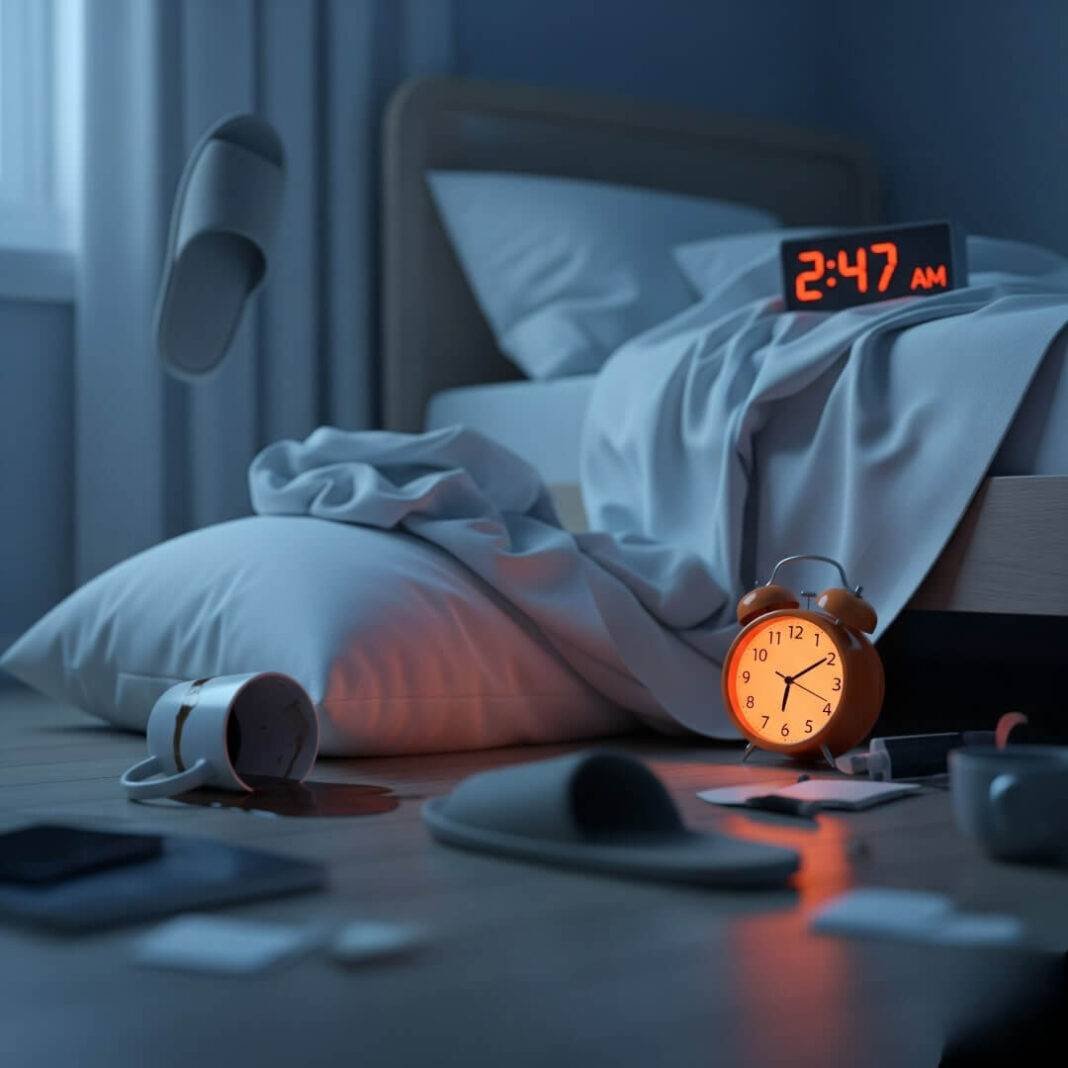Sleep Disorder Awareness: Spot Symptoms and Get Help Fast are straight-up owning me right now, and I’m not gonna lie, I’m a total disaster at dealing with them. I’m typing this on my rickety kitchen table in Chicago, with a half-eaten bagel staring at me and the neighbor’s dog barking like it’s auditioning for a horror movie. My coffee’s cold, my phone’s blowing up with X notifications, and I’m, like, 90% sure I forgot to lock my car last night. I’ve been wrestling with sleep troubles for months, and I’m spilling all my messy, slightly embarrassing thoughts here—human errors and all. If you’re stuck in the same sleepless hell, maybe my fumbles can help you spot sleep disorder symptoms and figure out what’s next.
Why Sleep Disorder Symptoms Are So Damn Sneaky
Sleep disorder symptoms aren’t always in-your-face obvious, y’know? I thought insomnia was just, like, staring at the ceiling all night, all dramatic like some old movie. But nah, it’s sneakier. For me, it’s waking up at 2 AM, heart pounding like I just ran a marathon, thinking I forgot to email my boss or left my stove on (I don’t even use my stove, lol). I’d end up scrolling X for hours, reading random posts about sleep hacks, which just made me more anxious. The National Sleep Foundation says stuff like random wake-ups, feeling wired at night, or being dead tired during the day are all sleep disorder symptoms, and I was, like, checking every box without even knowing it.
- Weird wake-ups: You’re out cold, then BOOM, you’re awake, stressing about nothing.
- Brain like mush: I forgot my own Wi-Fi password last week. Had to reset it. Twice.
- Body acting up: Random headaches or feeling like my skin’s too tight? Yeah, that’s me.

How I Totally Blew Off My Sleep Disorder Symptoms
Okay, real talk: I ignored my sleep problems for way too long. Like, I legit thought I was just “bad at sleeping,” like it’s a talent I never got. I’d drag myself to my coffee shop job, chugging energy drinks, pretending I wasn’t dying inside. One time, I fell asleep in the break room, faceplanted on a table, and my coworker thought I was “meditating.” So embarrassing. The Mayo Clinic lists sleep disorder symptoms like daytime exhaustion, crankiness, or trouble focusing, and I was, like, the poster child for all of that but too stubborn to notice.
It got worse when I started pacing my apartment at midnight, reorganizing my bookshelf or stress-eating cereal. I’d crash for 12 hours on weekends and still feel like I got run over by a bus. I finally started googling sleep troubles (and yeah, posting on X about it, don’t judge), and realized this wasn’t just “adulting.” It was a problem.
My Lame Attempts to Fix My Sleep Troubles
So, I tried fixing my Sleep Disorder Awareness on my own, and oh boy, it was a trainwreck. I bought this lavender pillow spray off Amazon, thinking it’d make me all zen. Nope, just smelled like a grandma’s closet. Then I tried one of those sleep meditation apps, but I kept getting annoyed at the guy’s voice telling me to “visualize a calm lake.” Like, dude, I’m visualizing my inbox blowing up. I even swore off caffeine for, like, three days, and I was so crabby my roommate threatened to move out FROM Sleep Disorder Awareness. The CDC has decent tips on sleep hygiene, like keeping a regular bedtime and ditching screens, but I’m still terrible at the screen part. Whoops.

What I’ve Figured Out About Spotting Sleep Disorder Symptoms
So, I started keeping a sleep journal—yeah, I’m that guy now—and it’s helped me pin down my sleep disorder symptoms. If you’re wondering if you’ve got sleep troubles, here’s what I’ve learned to look for, even if I don’t always follow my own advice:
- Tired but wired: You’re exhausted, but your brain’s like, “Let’s overthink everything!”
- Mood swings galore: I yelled at my cat for knocking over a plant, then felt bad and gave him treats. I’m a mess.
- Physical crap: Headaches, tense shoulders, or feeling like you’re running on empty.
- Memory fails: I left my keys in the fridge once. Don’t ask.
If this sounds like you, maybe it’s time to get help. I finally dragged myself to a doctor after I swore I saw my lamp flicker like it was haunted (turns out, sleep deprivation is wild). The American Academy of Sleep Medicine has a list of sleep clinics, which I’m gonna check out soon, I swear.
Getting Help for Sleep Disorder Symptoms Is Scary but Kinda Great
Admitting I needed help with sleep problems felt like waving a white flag. Like, I’m 30, I should have this Sleep Disorder Awareness thing down, right? Wrong. Talking to a doctor was awkward—I rambled about my 3 AM X binges—but they were chill and didn’t make me feel like a total failure. They suggested a sleep study, which sounds intimidating, but I’m kinda curious. If you’re dealing with sleep disorder symptoms, don’t wait like I did. Check out Sleep.org for some solid tips or find a doctor who gets it.

OUTBOUND LINKS: National Sleep Foundation
































